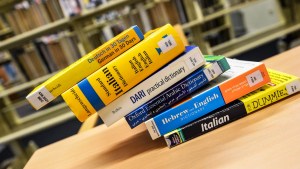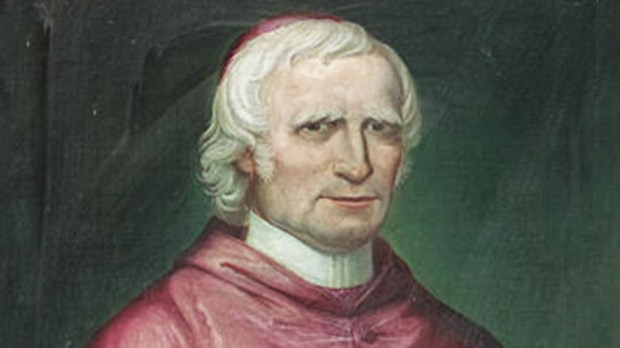It’s no surprise that a 19th-century Italian cardinal would know Latin and Greek. However, Giuseppe Caspar Mezzofanti took his language mastery to a new stratosphere, becoming fluent in Amharic, Armenian, Catalan, Chinese, Hindustani, Kurdish, Mongolian, Russian, Sanskrit, and Turkish, among many other tongues. And his curiosity for the way other people communicate led him to study lingos as obscure as Algonquin.
Mezzofanti was born in Bologna on September 17, 1774, (some sources list September 19). His father, a carpenter by trade, almost entirely lacked formal education but was known as a very intelligent man. His mother’s formal education was also limited, but both parents made sure that their son received the best schooling they could obtain for him.
As a youth, Mezzofanti learned classical languages and German, along with Spanish and some indigenous American dialects from Jesuits who had spent time in the Americas. He wanted to become a priest but proceeded to complete his studies at an age when he was too young for ordination. So, with time to spare, he plunged into the study of Far East languages.
Read more:
The unexpected benefit of learning about “foreign” saints
In 1797, he was ordained a priest and also became a professor of languages at the University of Bologna. However, he soon lost his professorship owing to his refusal to recite an oath of allegiance to the Cisalpine Republic, which governed much of Northern Italy for a period of five years.
Aside from this political turbulence in the region, warfare was raging across much of Europe. By attending to many wounded soldiers from various foreign nations, Mezzofanti augmented his repertoire of European languages. He also worked as a private language instructor during his period of academic banishment.
In 1803, with the dissolution of the Cisalpine Republic, he returned to the faculty at Bologna. Again owing to political reasons, he lost his professorship in 1808, but saw it restored six years later. From 1814 to 1831, he lectured in various languages, until he was dispatched to Rome. There he worked on behalf of the Propaganda Fide.
Mezzofanti was able to put his linguistic talents to great use in Rome. As the city received pilgrims from across the world, there was a need for a confessor fluent in many languages. In the unusual event that he encountered a language he did not know, he embarked on a mission to learn it.
In 1833, Mezzofanti took over as chief caretaker of the Vatican Library. On February 12, 1838, he was designated as a cardinal under the title of St. Onofrio al Gianicolo.
During Mezzofanti’s tenure at Rome, men of prominence would arrive, seeking to test his purported expertise in one language or another. Not all of these visitors were holy men. One of the secular guests, in fact, was Lord Byron, the libertine British poet and Romantic icon who also was conversant in many languages. He and Mezzofanti held a multilingual swearing contest, in which the cardinal triumphed.
At one point, Pope Gregory XVI himself wished to test Mezzofanti. So, in the gardens of the Vatican, he planted a diverse selection of international students. As Gregory XVI and Mezzofanti strolled through the Vatican gardens, the international students emerged from their concealed positions and addressed the cardinal in their respective native languages. The cardinal, in turn, “made answer to each with promptitude and propriety, and continued to discourse now with one and now with another in all their various idioms.”
There is no record of Mezzofanti – who died in Rome after a prolonged period of ill health on March 15, 1849, at age 74 – having stated the number of languages in which he had attained fluency. Indeed, even if he was around today, an exact number might prove a difficult piece of information to obtain, seeing as how “fluency” can be a rather subjective concept.
However, based on eyewitness accounts and interviews conducted by language scholars, one can say with considerable confidence that Mezzofanti was fluent in a minimum of 30 languages, the origins of which span the continents of Africa, Asia, the Americas, and Europe. He also had proficiency in some 30 other languages, along with an assortment of dialects.
The ability of human languages to communicate nuanced information is a huge part of what makes us a special species. In this most fundamental of human attributes, Mezzofanti reached a new horizon.

Read more:
A very Catholic reason you should learn a new language

